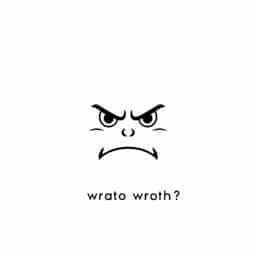When encountering the phrase Why are thou wroth? many may feel they are stepping into a scene from a Shakespearean play or reading an ancient manuscript. This phrase carries with it a powerful tone and a sense of solemnity that is rarely found in modern English. Although the wording may seem old-fashioned, its meaning is deeply rooted in human emotions and moral reflection. Understanding this expression requires a closer look at the words, their origins, and how they were used in historical and biblical contexts.
Understanding the Language of the Phrase
What Does Why Are Thou Wroth Mean?
The phrase Why are thou wroth? is an archaic form of English. To decode it, we must translate it into modern English:
- Why– simply asks for a reason or cause.
- Art thou– is the old English version of are you.
- Wroth– means angry, furious, or deeply upset.
So, the full modern translation would be: Why are you angry?orWhy are you upset?
Origins in Biblical and Literary Texts
The phrase is most famously found in the Bible, specifically in the Book of Genesis. In Genesis 4: 6, God speaks to Cain: Why art thou wroth? and why is thy countenance fallen? This question comes after Cain’s offering was rejected while Abel’s was accepted. The phrase is not only a question but also a subtle invitation to self-examination and control over emotions.
Historical Usage of Wroth
What Is Wroth and Where Does It Come From?
The word wroth comes from Old EnglishwrÄth, which means angry or enraged. It is related to the word wrath, which is still used today but typically in more formal or literary settings. In earlier centuries, wroth was a common word to describe someone who was filled with rage or righteous anger. Though now archaic, it once appeared frequently in religious, poetic, and dramatic writings.
Examples of Wroth in Classic Literature
Writers such as William Shakespeare, John Milton, and other poets of the 16th and 17th centuries often used the word wroth to convey heightened emotional states. It added gravitas to scenes involving conflict, betrayal, or moral outrage.
Deeper Meaning Behind the Phrase
The Emotional and Moral Layers
Why are thou wroth? is not just a question of surface emotion. In its original biblical context, the phrase is deeply tied to the idea of accountability and the importance of managing one’s feelings before they lead to destructive actions. In Cain’s case, the anger he did not control led to the murder of his brother, Abel. The phrase therefore invites self-reflection: What is the root of your anger? Is it just? Is it dangerous?
Use in Religious Teachings
Many religious interpretations view the phrase as God’s way of offering Cain a chance to reflect and correct his inner state before it manifested into violence. It symbolizes a moment where emotion meets conscience. In this sense, the question is both philosophical and spiritual.
Modern Relevance and Interpretations
Using the Phrase Today
While Why are thou wroth? is not a phrase used in everyday conversation today, its sentiment is still relevant. Modern equivalents such as Why are you angry? or What’s bothering you? serve the same function but may lack the depth and formality of the original. Some speakers or writers may use the old phrasing for dramatic effect, poetic flavor, or religious reflection.
Philosophical and Psychological Insight
In the realm of psychology, asking someone why they are angry is a powerful tool for emotional insight. When used thoughtfully, it can help a person understand the real reasons behind their feelings whether it’s hurt, frustration, jealousy, or fear. The phrase Why are thou wroth? serves as an early example of emotional intelligence in language.
Cultural and Linguistic Significance
Archaic Language in Modern Understanding
The English language is rich with words that have evolved or fallen out of use. Phrases like Why are thou wroth? serve as linguistic markers of how English once functioned. Studying them helps us appreciate the complexity and depth of expression available in earlier times. These phrases are often studied in literature and theology classes to explore how language conveys moral and emotional tone.
The Power of Formal Questioning
In contrast to casual expressions of inquiry, the formal and poetic nature of Why are thou wroth? adds seriousness to the question. It invites not just a quick reply but deep introspection. The formality emphasizes the significance of emotion and its potential consequences.
Examples in Modern Creative Writing
In Drama and Poetry
Writers today might use the phrase in historical fiction, fantasy, or religious drama to evoke a certain period or emotional weight. For instance:
He turned to her with a fire in his eyes and said, Why are thou wroth with me, my beloved? Have I not loved thee still?’
This example illustrates how the phrase can be used to enhance emotional tension and poetic tone.
In Music and Spoken Word
Some lyricists and spoken word artists also incorporate older forms of English to give their works a timeless or classical feel. The phrase Why are thou wroth? might be included in lyrics that discuss betrayal, anger, or divine questioning.
The Timeless Value of Emotional Language
Though the phrase Why are thou wroth? may no longer be part of common speech, its significance endures. It represents a moment of pause, a call to self-awareness, and a question that transcends time. Whether in ancient scripture, poetic verse, or philosophical dialogue, the phrase invites us to consider not only what we feel but why we feel it. In today’s fast-paced world, such questions remain as relevant as ever, reminding us of the depth and dignity that language can bring to human emotion.
